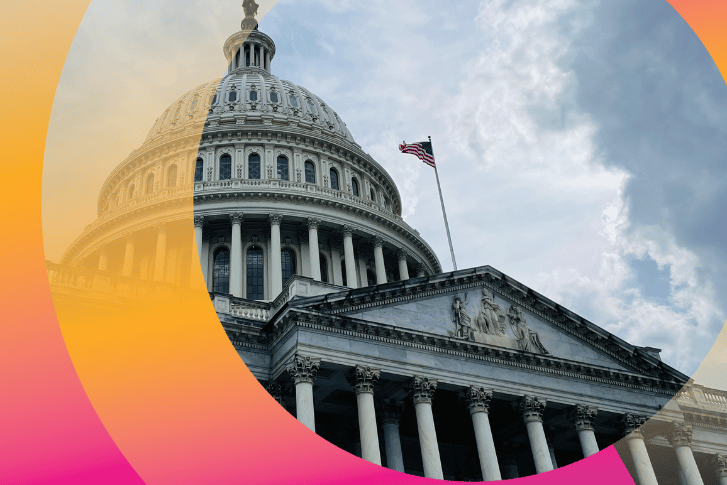This article was originally published in September 2023, and has been updated to reflect an upcoming potential government shutdown.
As U.S. lawmakers return from the President’s Day holiday, they are facing another potential government shutdown which would have significant healthcare consequences. Congress is currently confronted with two deadlines over the coming weeks:
- March 1, 2024: funding for FDA and the VA
- March 8, 2024: funding for HHS.
Along with the other impacted government agencies, the ability of the Food and Drug Administration (FDA) to operate at “normal” capacity will be impacted by a government shutdown. Issues such as adequate staffing and funding could result in longer review timelines by the FDA. Additional potential impacts on the submissions of marketing applications may arise if government funding is not resolved by the end of February 2024.
FDA Staffing During a Government Shutdown
If a government shutdown is initiated on March 1, 2024, nearly one-fifth of the FDA staff will be furloughed. The Agency can retain 64% (12,300) of staff members who are considered exempt from appropriations, and an additional 17% (3,302) staff members will be retained to mitigate imminent health threats, protect property, or continue working as related to “necessary work.” The reduced number of staff could potentially impact the efficiency of FDA’s review teams to complete reviews per performance goal timelines.
In 2018-2019, approximately 40% of FDA employees were furloughed due to a similar government shutdown. Many FDA websites were not updated, and Agency personnel were not consistently available to respond to communications during this similar furlough. As the potential for this 2023 government shutdown implicates a furlough of 19% of FDA employees, the issues related to FDA staffing may not be as widespread as in 2018-2019. Approximately 229 Public Health Service Commissioned Corps officers will also be able to continue to work at the FDA despite the halt in funding. However, as Agency work has trended toward more online communications, the lack of electronic response from the FDA during a government shutdown may impact program timelines due to delays in responding to sponsors on critical development issues. The actual impact on FDA availability and how this will translate to reductions in efficiency is unknown at this time.
FDA Funding During a Government Shutdown
Approximately 64% of FDA staff are exempt from appropriations due to various funding sources, including executive branch monies, carryover user fees, the Working Capital Fund, and COVID-19 supplemental funding. The user fee carryover funding may eventually run out during a shutdown. Still, the reserves can continue to be used for activities such as approving new products, reviewing clinical research, and publishing FDA guidance documents. Notably, during a government shutdown, the FDA cannot accept any new user fees. If a user fee has already been paid, an original marketing application will likely continue with “normal” FDA review timeline expectations. Therefore, marketing applications with outstanding user fee payments will not be accepted for submission during a government shutdown. It is expected that the review timeline for items covered by user fees (i.e., marketing applications, supplements, meeting requests) will continue close to normal operations. Still, items not covered by user fees may experience review delays (i.e., general correspondences).
Effective Planning During an FDA Furlough
Effective communication with the FDA is a critical component for developing a successful medicinal product program. The potential for reduced funding and reduced FDA staff availability during a government shutdown could negatively affect the streamlined communication that is typically available during normal FDA operations. With this understanding, regulatory consulting resources such as ProPharma can advise the most appropriate path forward to prevent the stalling of program development while reduced FDA resources are available.
With over 40 years of experience corresponding on behalf of sponsors across all divisions at the FDA, particularly during past government shutdowns, ProPharma has the capability to assist in effectively navigating communications with the FDA during the impending furlough and beyond. ProPharma’s extensive familiarity with each FDA Division, including regulatory project managers and Division directors, is an asset to continue to foster a good-standing relationship with the FDA. While it is understood that certain aspects of a government shutdown cannot be mitigated, maintaining a positive relationship and open dialogue with the Agency is imperative to the success of pharmaceutical programs.
Key Takeaways on the Impact of a Government Shutdown on the FDA
The notification of a U.S. government shutdown will be made public by March 1, 2024. In the event of a furlough of nearly 20% of FDA employees, the true potential effects on FDA review timelines are currently unknown. To mitigate potential delays in FDA reviews, delays in communications, and to continue to foster positive relationships with the Agency, sponsors can rely on ProPharma’s past experience and historical knowledge of FDA Division intricacies to guide the appropriate path forward during a government shutdown.
Connect with one of ProPharma's regulatory experts today and discuss how we can help you successfully navigate these challenges and mitigate any potential effects on your product timeline.

